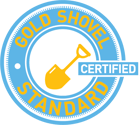How to Save Energy at Home in Sacramento [6 Tips]
Posted by William Heinselman on
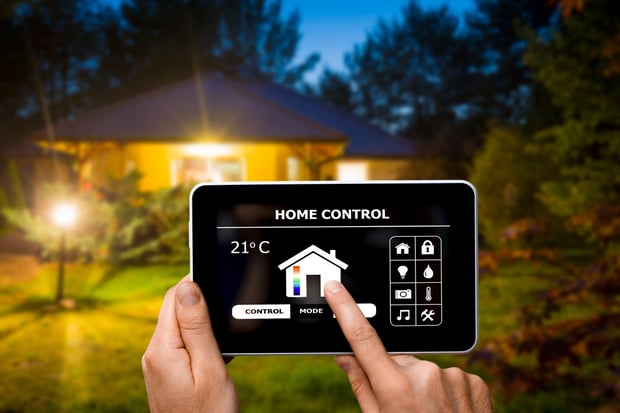
As energy costs rise and concerns about the environment grow, more homeowners in Sacramento are looking for practical ways to reduce their energy use and cut down on bills. If you’ve been wondering how to save energy at home, you’re not alone.
From simple habits to smart upgrades, there are a variety of effective strategies to reduce your household’s energy consumption, all while contributing to a more sustainable future. In this post, we’ll explore the best energy-saving tips for Sacramento homeowners to help you lower your energy footprint and keep your home running efficiently.
How to Save Energy at Home
From increased comfort to saving money on energy bills and protecting the planet, saving energy where possible can have a big impact on your day-to-day life. Here are some simple ways that you can save energy around the house in Sacramento:
1: Using Energy-Efficient Lighting
If you’re still using old-fashioned fluorescent light bulbs, it’s definitely time to make the switch. In the last few years, newer energy-efficient lighting has caught up with the old fluorescents—offering the same brightness (measured in lumens) for a fraction of the energy consumed.
Newer Light-Emitting Diode (LED), halogen incandescent, and compact fluorescent (CFL) bulbs not only save energy compared to standard fluorescents, but they tend to last many times longer as well. You can find these super-efficient lights at most departments, supermarkets, and home improvement stores.
Even with high-efficiency bulbs, though, it’s important to make sure you’re not wasting electricity, so be sure to shut off the lights (and any other appliances) when you leave a room if you don’t need them on.
2: Check Your Home’s Insulation
Normally, when you think of insulation, you’re thinking of something that keeps your house warm. So, why check your insulation in warm, sunny Sacramento?
Because insulation does more than keep your house warm—it helps maintain your home’s temperature year-round. When you have worn or insufficient insulation, indoor air can leak out, and outdoor air can get in.
This means that your HVAC system has to work harder year-round to maintain a comfortable temperature in your house. And, the harder the HVAC has to work, the more energy it burns.
While a professional can easily make a thorough inspection of your home’s insulation, a few points of interest you can check yourself include:
- The Attic: The attic/crawlspace is a huge vulnerable area in a lot of homes. Depending on the type of insulation your home uses (typically fiberglass), you may need as much as a foot thick of insulation to properly insulate this space.
- Windows: Check around the edges of window panes to see if the sealant around them is cracked or peeling. Additionally, if the window is closed, is there a draft coming from it?
- Doors: If the frame around a door doesn’t form a solid seal, air could leak in and out with ease. When doors leading to the outside are closed, is there a draft or light coming in through the door frame? If so, you could have a gap that needs fixing.
- Pipe/Cable Ingresses: One frequently overlooked piece of insulation is the insulation surrounding the pipes and electrical cables leading into your home. Gaps in the walls/foundation near these utility ingresses can allow outside air in—not to mention pests.
Whatever you do, DON’T stick your hand in fiberglass insulation, as it is an irritant that can cause burning, itching, and infections.
If you install new insulation, be sure to wear appropriate safety gear, such as goggles, a painter’s mask, gloves, a long-sleeve shirt, pants, and a head covering to protect your skin, eyes, and lungs/throat from contact with insulation. Also, make sure you have a second person to help you out.
To install new insulation in your home’s walls, it is strongly recommended that you use a professional service, as some tear down and replacement may be necessary.
3: Upgrade Your Home’s Windows
Even when the window frame is properly insulated and sealed, the window panes themselves can be a major weak point in your home’s insulation. Single-layer panes of glass are little better than just leaving the window open when it comes to keeping heat from seeping out or in.
If you have older, single-layer window panes, consider upgrading to two-pane windows with special coatings to help keep the cool/warm air in during summer and winter. Also, during the summer, consider switching to heavier curtains to keep excessive sunlight out.
Replacing windows can be very expensive compared to some of the other measures listed here. But, if you have a spare budget, it could be a worthwhile upgrade that saves you money for years to come.
4: Tune Up Your WHOLE HVAC System
People often forget about basic HVAC system maintenance. At least, until the HVAC system stops working or suddenly starts consuming way more energy than usual to keep the house warm in winter and cool in summer.
Poor indoor air quality and clogged filters make HVAC systems work harder to maintain a set temperature. And, as we mentioned earlier, the harder the system has to work, the more energy it consumes.
It might be worthwhile to run some basic maintenance on your HVAC at the start of summer and:
- Replace Any and All Air Filters: Clean filters allow air to move more easily, making it so the HVAC doesn’t have to work so hard.
- Clean the Air Ducts to Flush Out Excess Dust: It doesn’t do much good to replace the air filters if they just get clogged with the dust and dirt in the ducts right away. Clean the ducts out as best as you can to prevent built-up dust from polluting your home’s air and getting sucked back into the air filters.
- Check Air Ducts for Gaps or Leaks: While you’re cleaning the air ducts, you might as well inspect them for gaps or leaks that could be letting your conditioned air leak into the attic or other spaces where you’re not trying to control the temperature. Fixing these gaps helps improve air pressure and increase energy efficiency.
- Check the Drip Collection Pan for Pools of Moisture: An overworked air conditioning unit may start to collect condensation, which then collects in the drip pan. If there is an excessive amount of water in the drip pan, then your HVAC may have an issue that needs fixing.
Repairing many of these common HVAC issues can help you get more performance out of your existing HVAC unit while reducing energy consumption. You may want to consider hiring a commercial HVAC contractor to help you out.
Additionally, consider keeping the temperature slightly warmer in the summer. A difference of just a few degrees can significantly reduce your monthly energy use. Also, if you and your family are going to be out of the house for a long period of time (days or weeks), consider turning off the HVAC entirely while you’re out.
5: Unplug Unnecessary Electronics/Use Master Power Save Surge Protectors
Many electronic devices such as computers, game systems, and some televisions/computer monitors passively consume electricity as long as they’re plugged in so that they can power up faster when turned on or download updates when they’re turned off.
While some of these devices may let you configure their “passive” or “off” power consumption modes, others may not. One way to fix this is to unplug any device that you don’t plan on using for a long time from the electrical socket—preventing it from consuming power.
Another solution may be to use surge protectors that have a “Master/power save” setup. These surge protectors have an internal system that keeps one device on a “master” smart plug connected to the power, while all the other plugs are cut off from the power whenever the device connected to the master switch is off.
Once the piece of electronics plugged into the “master” plug is turned on, the rest of the plugs are powered on. This setup minimizes power consumption when your electronics aren’t in use, and doesn’t require you to keep plugging and unplugging everything.
In PC setups, the computer tower is typically connected to the master plug, while speakers, monitors, etc. are on the power save plugs. In an entertainment center, you might connect the TV to the master plug, and DVD/Blu-Ray players, game consoles, and surround sound systems to the power-save plugs.
6: Consider Using a Tankless Water Heater
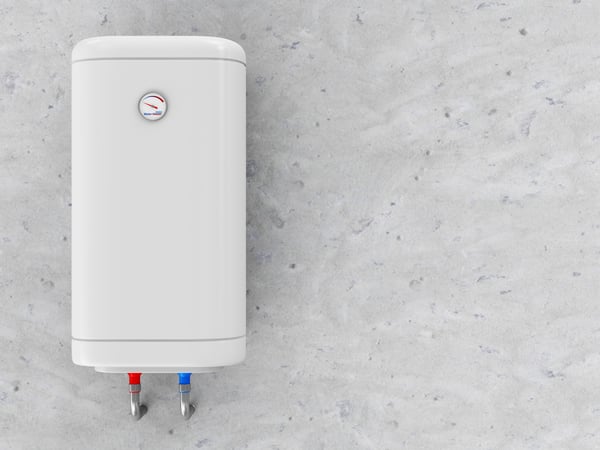
Most water heaters in a home have one thing in common: a sizeable tank or reservoir of water that the heater has to constantly keep hot. While convenient for giving you access to hot water on a moment’s notice, over time, the cost of keeping X gallons of water hot can really add up.
It doesn’t matter if you have an electric or natural gas heater—you’ll be constantly burning energy or fuel to keep that water hot.
An alternative to the old tank-based heating solution is to use a tankless water heater that warms water as it’s being used rather than constantly working to keep a reservoir of water hot.
The disadvantage of a tankless unit is that there may be a slightly longer warm-up period before your water gets up to temperature. However, these units will only consume energy when you’re consuming water—so there’s typically a significant energy savings.
If your current water heater is showing signs of wear, such as leaks, odd noises, or copious sediment in your hot water, it may be a good time to consider a water heater replacement involving a tankless unit.
Looking for More Help on Modernizing Your Appliances? Contact Express Sewer!
Taking steps to improve your home's energy efficiency not only helps reduce your utility bills but also contributes to a healthier environment. By implementing these energy-saving strategies, from upgrading your lighting and insulation to maintaining your HVAC system and considering tankless water heaters, you can make a significant impact. Remember, every small change adds up to a more sustainable and cost-effective home. Start with one or two of these tips and gradually incorporate more to maximize your energy savings.
These are just a few of the ways you could save energy in your Sacramento home. For more tips and help, check out some of our other resources!
Topics: Plumbing in Sacramento

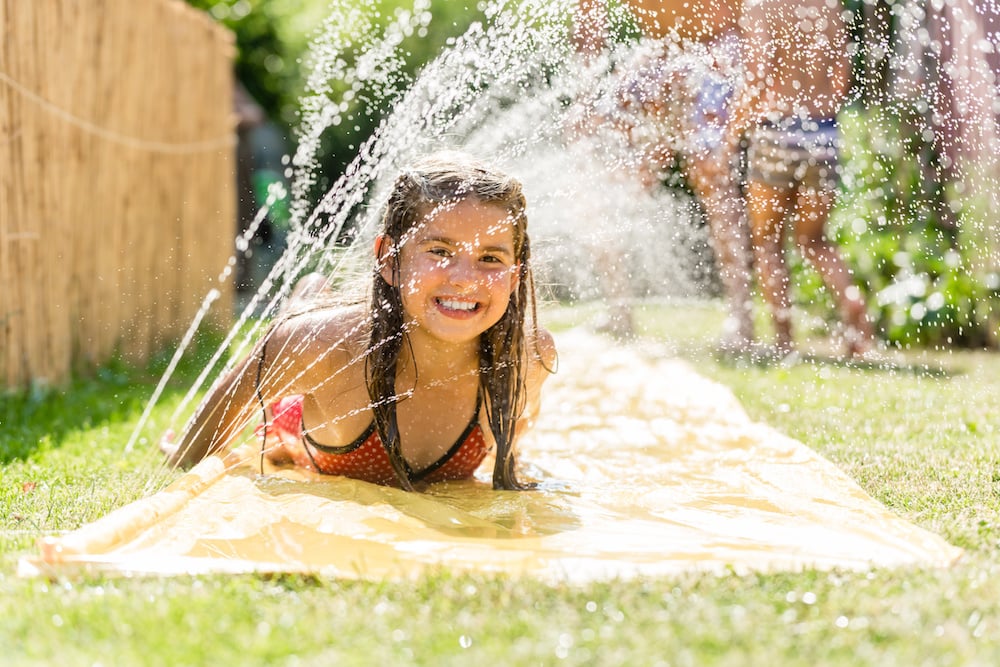
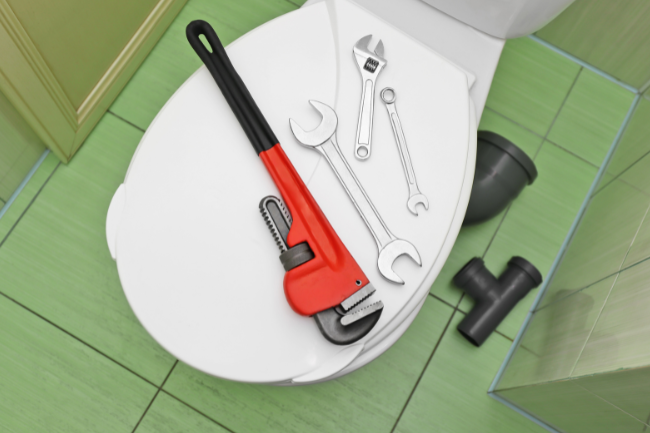
![How to Prevent Flooding [6 Tips to Protect Your Property]](https://www.expresssewer.com/hubfs/prevent_flood.png?width=550)

